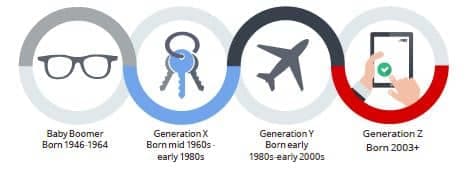What’s keeping accountants awake?
Updated 7th July 2022 | 3 min read Published 1st August 2018

There is a continual number of business issues keeping industry professionals awake at night; from changes in legislation, to succession planning and considering the best way to restructure a practice to evolve beyond compliance services.
Looking outside the industry, it’s interesting to see the recent Times CEO summit found business leaders queueing up to voice their frustrations. Topping the list of concerns (with 26%) was “how to improve my team and hire the right people”.
According to Deloitte’s 2018 Global Human Capital Trends[1], in the 21st century, “careers are no longer narrowly defined by jobs and skills but through experiences and learning agility. The ongoing transformation of work, the need for people and organisations to constantly upgrade capabilities and shifts in employee preferences demands new approaches to learning, job design, performance management, and career development”. From conversations with accountancy professionals, it seems our industry is no different.
In fact, amid our industry transformation, the changing nature of the workplace is taking centre stage. So how can the industry manage the variety and diversity of skills within the accountancy industry over the next five years?
Generations in numbers
To firstly give some context of the generational changes in the accountancy: February 2018 figures from the Office for National Statistics (ONS) states there are 43,705 practices in the UK (not including the micro-practice sector). According to OC&C, in 2017 20% of accounting partners were 40 years old and under, which will rise to 36% by 2022 and by 2027, it’s anticipated that 52% of accounting partners will be 40 years old and younger.
The diversity of skills, the approach to work and expectations are changing. For millennials and Generation Z, culture and rewards need to align with personal values; learning and inclusion are needed to prevent them from leaving a company. At the other end of the spectrum, the ONS reports the proportion of those aged 65 and over who work has almost doubled since records were first collected. Each generation brings a different set of skills, attitude and capabilities to a role.
Managing the diversity of skills
To thrive in the digital economy, accountancy practices should firstly embrace the differences of each generation to bring out the best in them. Experienced members of the team can help coach and mentor younger generations, guiding on the best advisory-based consultancy for clients. There may of course be opinion clashes at times, but sensitive understanding will help collaboration.
Embracing differences also works the other way: older generations who are not proficient in skills such as technology can learn from those who have recent qualifications, helping them adopt new tools and technologies to thrive in the new digital economy.
As the industry evolves, we are seeing acquisitions, mergers and retirement, so managing the skill-set of all professionals helps with succession planning or achieving specific business goals. This is especially important as advisory-based services become diversified. We are seeing portfolios emerging across multiple disciplines, for example practices are now offering business improvement services, pensions and investments, recruitment, human resource and legal services and even branching out to areas such as property services.
The digital leader
Improving teams, hiring the right people, training and coaching will support the variety and diversity of skills within the accountancy industry in the coming years. It will need top to bottom organisational transformation, which requires leaders who can evolve beyond the traditional accountancy practice model and use the tools around them to innovate.
We know the industry must digitally transform. We know there are many ways to do it. What’s most apparent now is time is running out. These changes must start now in order to survive in the digital economy.
And next time you are being kept awake at night, remember “we have a powerful potential in our youth, and we must have the courage to change old ideas and practices so that we may direct their power toward good ends[2].”
[1] https://www2.deloitte.com/insights/us/en/focus/human-capital-trends/2018/building-21st-century-careers.html
[2] Quote from Mary Jane McLeod Bethune, an American educator, stateswoman and national adviser





